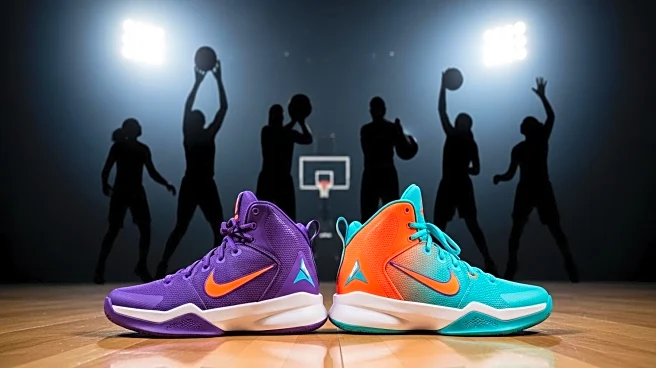What's Happening?
Minnesota Lynx star Napheesa Collier has openly criticized the leadership of the WNBA, particularly targeting the league's accountability and officiating standards. During her 2025 exit interview, Collier expressed dissatisfaction with the current state of leadership, stating that the league's real threat is not financial or related to ratings, but rather the lack of accountability from the league office. Her comments have sparked a response from WNBA Commissioner Cathy Engelbert, who expressed respect for Collier and emphasized her commitment to the league's future. Collier's remarks have resonated with other players, including Los Angeles Sparks' Dearica Hamby, who publicly supported Collier's stance. The issue of officiating consistency has been a recurring topic among players, with Sparks' Kelsey Plum previously voicing similar concerns during the WNBA All-Star media availability.
Why It's Important?
Collier's criticism highlights ongoing concerns within the WNBA regarding leadership and officiating, which could impact the league's reputation and player satisfaction. The support from other players suggests a broader discontent that may require the league to address these issues to maintain player trust and ensure the league's growth. The WNBA's ability to effectively manage these concerns is crucial for its continued development and the retention of top talent. The public nature of these criticisms could pressure the league to implement changes that improve accountability and officiating standards, potentially leading to a more equitable and transparent environment for players.
What's Next?
The WNBA may need to engage in dialogue with players to address the concerns raised by Collier and others. This could involve reviewing officiating protocols and enhancing transparency in decision-making processes. The league's response to these criticisms will be closely watched by players and fans alike, and could influence future negotiations and policies. Commissioner Engelbert's commitment to collaboration suggests potential initiatives aimed at improving league operations and player relations. The outcome of these discussions could set a precedent for how the league handles internal criticism and player feedback moving forward.
Beyond the Headlines
Collier's comments and the subsequent support from players underscore the importance of leadership accountability in professional sports. This situation may prompt other leagues to examine their own governance structures and player relations. The ethical dimension of ensuring fair play and transparent leadership is critical in maintaining the integrity of sports organizations. Long-term, this could lead to shifts in how sports leagues engage with their athletes and address systemic issues, fostering a culture of openness and mutual respect.











